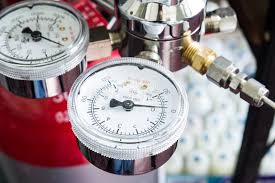
Finding Reliable Suppliers
Some well-known international suppliers of gas regulators include:
Navigating Regulations and Compliance
Importing gas regulators into Nigeria requires adherence to specific regulations set forth by regulatory bodies such as the Standards Organization of Nigeria (SON) and the Nigerian Customs Service (NCS). It's essential to familiarize yourself with these regulations to avoid any delays or compliance issues.
Key regulations to consider include:
Product Certification: Gas regulators must meet Nigerian Industrial Standards (NIS) and undergo certification processes to ensure quality and safety standards are met.
Import Duties and Taxes: Importers are responsible for paying applicable duties and taxes imposed by Nigerian customs authorities. These fees vary depending on the value and classification of the imported goods.
Documentation: Proper documentation, including commercial invoices, packing lists, and certificates of origin, is required for customs clearance.
Product Classification: Gas regulators are classified under specific Harmonized System (HS) codes for customs clearance purposes. The HS code for gas regulators is typically 8481.80.
Handling and Freight Transportation
Proper handling and transportation of gas regulators are critical to prevent damage and ensure the integrity of the products upon arrival. Working with experienced freight forwarders who specialize in handling hazardous or sensitive goods can help mitigate risks associated with transportation.
Choosing the appropriate mode of transportation, whether by sea freight or air freight, depends on factors such as cost, transit time, and the nature of the goods. Sea freight is often preferred for large shipments due to its cost-effectiveness, while air freight offers faster transit times for urgent deliveries.
Read Also: Nigeria's Economic Crisis: How Valuehandlers’ Assist its Customer
Customs Clearing Process
Navigating the customs clearing process in Nigeria requires careful attention to detail and compliance with all relevant regulations. Working with licensed customs agents or brokers can streamline the process and ensure timely clearance of your goods.
Key steps in the customs clearing process include:
Provide all required documents for clearing including the bill of lading/Airway bill, commercial invoice, packing list, and certificates of origin to our customer care representative at customercare@valuehandlers.com and let advise how best to navigate the customs clearing process.
Goods are subject to inspection by customs officials to verify compliance with regulations and assess duties and taxes.
Pay applicable import duties, taxes, and fees to customs authorities to facilitate the release of your goods.
Once customs clearance is obtained, your gas regulators will be released for delivery to their final destination.
If you require further information, reach out to Oluwatosin via 08032241768 or whatsapp 08082375017.
Valuehandlers International Limited is a leading logistics and freight forwarding company based in Nigeria. We offer a wide range of services, including air & sea freight, customs clearing, cargo consolidation, door-to-door delivery, warehousing, distribution, and project cargo handling. Committed to delivering efficient and reliable logistics solutions, Valuehandlers focuses on understanding and meeting the unique needs of each client, contributing to the growth of businesses domestically and international.
